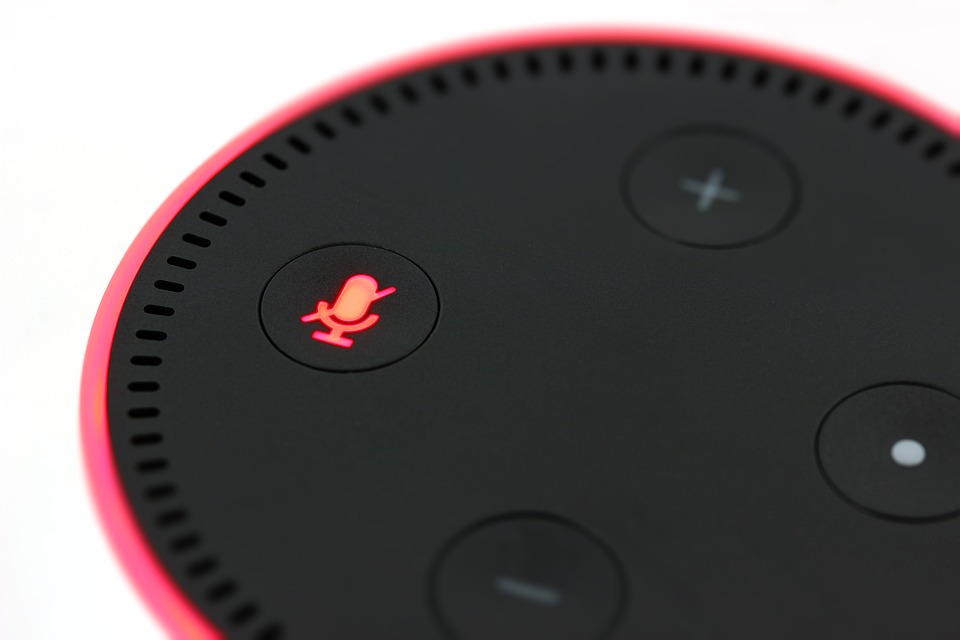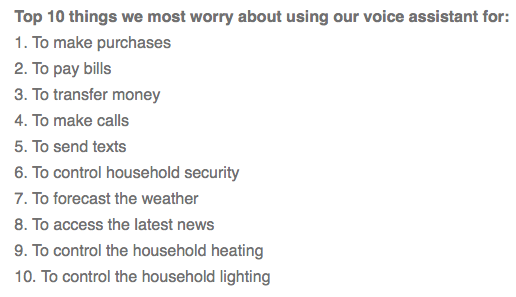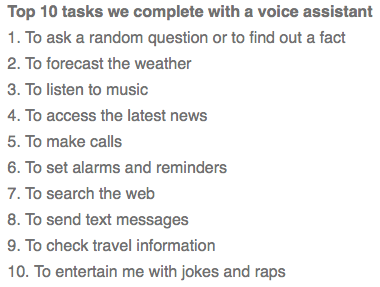Technology is taking over our lives at an increasingly rapid rate and it’s got a lot of PAs worried that they will be replaced with a phone app. Vincenzo Ferrara thinks that change is in the air, with investment and development in AI (artificial intelligence), it seems likely that in the future a lot of the tasks that make up an assistant’s job will soon be replaced by these new technological advancements.
But, should we really be worried? Well, according to a recent survey, perhaps not. A poll of 1,000 UK adults who use voice assistants at least once a week found more than one quarter shy away from using their device to make payments, while 28 per cent are hesitant to use it to pay bills. Meanwhile, another 27 per cent worry about transferring money through their device.
The study by Accenture UK also found more than one in five admit they leave the room or lower their voice to make sure their device can’t spy on them. 48 per cent believe the technology is always listening – even when they’ve not been given a command.
The reluctance to trust their device for 52 per cent of those polled comes from concerns about security while 55 per cent admit they fear being hacked and having their personal details stolen.
Emma Kendrew, artificial intelligence lead for Accenture Technology in the UK, said: “The take-up for voice assistants has been big, especially when you consider they’re a very new technology. However, many people are not using them to their full potential because of trust issues.
“There are a lot of misconceptions out there about how these voice assistants work. The outcome is that customers are sending a clear message that they need to feel greater confidence in the technology and its providers. We’re confident that this trust will develop as more security standards and integrity are built into voice technology. E-commerce and online banking went through the same stages of development – once there is tighter security, people will use it more.
“Once voice assistants are seen as more trustworthy, people will come to see how they can improve everyday tasks, literally without lifting a finger.”
The study also found that while voice assistants mean sophisticated functionality is just a simple command away, most people only use theirs for basic tasks.
On average, users are speaking to their voice assistant four times a day – with three in ten saying this is more often than they speak to their family. But, they are still most likely to use it to answer a random question or find out a fact (54 per cent), followed by checking the weather forecast (50 per cent) and listening to music (45 per cent).
In fact, the average user is taking advantage of just six of their device’s functions, which is barely the tip of the iceberg when the Amazon Echo, for example, has over 45,000 to choose from. Carried out via OnePoll.com, the research found a lack of trust is the reason more than one in five (22 per cent) don’t use their voice assistant more.
So what does this mean for you, the human assistant? It’s not all doom and gloom.
You really have two choices; the first is to maintain an emotional relationship with your boss, in terms of understanding their needs. A voice assistant will struggle to read temperament and understand urgency, not ideal when you need to book somewhere for a last minute meeting or planning an event that people will enjoy. AI can book a venue, entertainment and catering, but will it live up to the expectation of those attending? We still live in a world where we need human input for events to become a success.
Your other choice is to embrace the technology, jump on the bandwagon early and learn how you can use it to your advantage and evolve with the smart systems. In the future, assistants at all levels will need to involve this technology in their job and the sooner you can get to grips with it the better.












